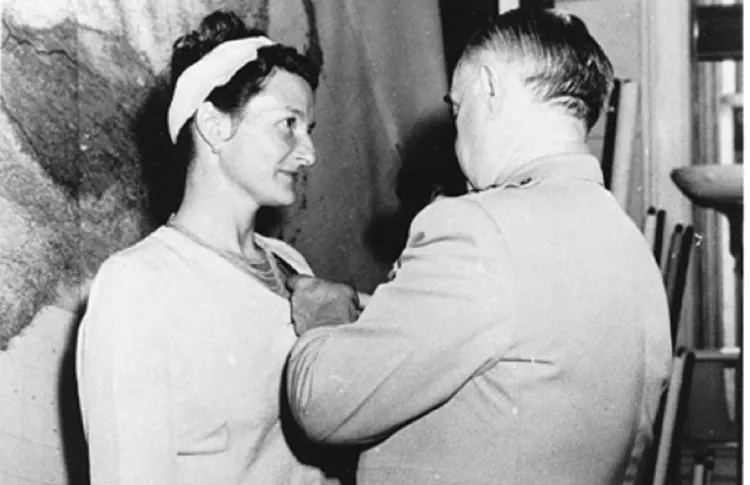A Woman Who Fooled the Nazis, Crossed Mountains on a Wooden Leg, and Became One of the Greatest Spies in History, Her Name Was Virginia Hall
She wasn’t born a soldier. She wasn’t expected to be a spy. But Virginia Hall, a woman with one leg and unshakable courage, became one of the most dangerous threats to the Nazis in World War II. With sharp intelligence, quiet strength, and fearless willpower, she risked everything—not for fame or reward, but for freedom and humanity. Her story is not just about war; it’s about the power of a woman who refused to give up, no matter the cost.
Born in 1906, Virginia grew up with big dreams. She wanted to be a U.S. diplomat. But a terrible hunting accident in her 20s took her left leg. A wooden leg replaced it, which she called “Cuthbert.” Because of this disability, she was rejected from the U.S. Foreign Service. But Virginia didn’t let it stop her. She moved to Europe, searching for purpose. And when war broke out in 1939, she found it.
At the start of World War II, Virginia joined the French ambulance service, helping wounded soldiers. But she wanted to do more. In 1941, she was recruited by the British Special Operations Executive (SOE), a secret organization set up to spy and sabotage the Nazis. She was the first female agent sent into France. Her cover identity? A reporter named Brigitte LeContre. Her real mission? Organize and support the French Resistance from behind enemy lines.
In a land full of fear, Virginia became hope. She built networks, planned secret meetings, hid Allied soldiers, and helped them escape. She arranged parachute drops of weapons. She smuggled out information about Nazi movements. She helped prisoners break out of jails. The resistance group she led was codenamed “HECKLER.” She worked under constant risk. The Nazis, especially the Gestapo, wanted her badly. They called her “the Limping Lady” and put her at the top of their most-wanted list.
Still, she stayed one step ahead.
But in 1942, her situation became deadly. The Nazis had taken full control of France. The infamous Klaus Barbie—known as “The Butcher of Lyon”—was sent to catch her. Virginia had to escape quickly. Her only route was across the Pyrenees mountains into Spain. Cold, snow, steep trails—and a wooden leg. She couldn’t ride a horse. She couldn’t move fast. But she didn’t give up. For two days, she climbed and limped through icy winds and pain. She called it “the scariest thing I’d ever do.” But she made it. And she didn’t stop.
After reaching safety, Virginia joined the American Office of Strategic Services (OSS)—the agency that would later become the CIA. In 1944, she returned to France. This time, disguised as an old milkmaid. Her mission? Lead the resistance and prepare for the Allied invasion. Under her command, the French fighters blew up bridges, cut enemy phone lines, derailed trains, and pushed back German forces. Her group grew to over 1,500 people.
She changed the game. But she never asked for attention.
Virginia Hall rarely spoke of her actions. She received awards from both Britain and America, including the Medal of Honor for her bravery. But she remained quiet, humble, and deeply committed to her duty.
Her story teaches us something important. That courage is not about perfection. It's about rising even when you’ve been knocked down. That disability doesn’t mean weakness. That a woman, even in a world run by men, can lead, fight, and win.
Virginia Hall was not born a hero. She became one by choice.
And the world is better because she did.








